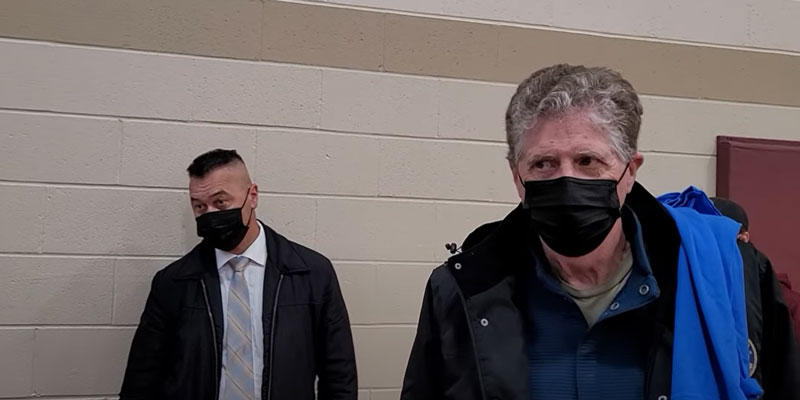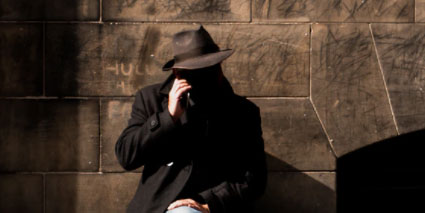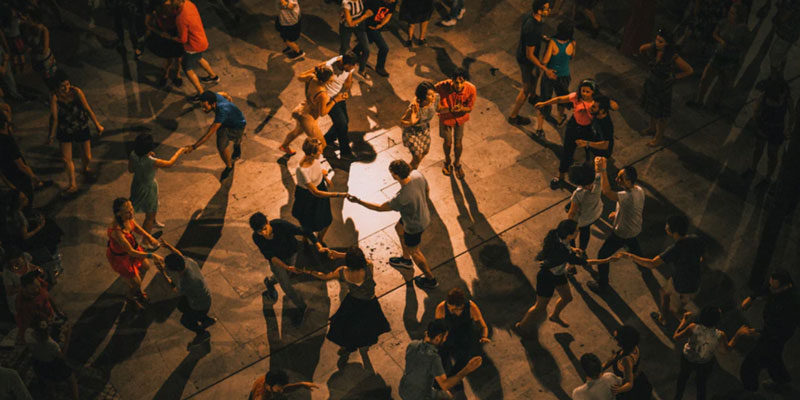Yes, it’s early in the campaign, but I’m comfortable issuing the declaration in this post’s subject line based on Democrat Governor Dan McKee’s rescission of his historic proclamation recognizing School Choice Week:
Gov. Dan McKee’s office said Tuesday night he hadn’t intended to issue a newly surfaced proclamation as part of a national campaign in praise of “school choice.” …
McKee’s office had not publicized the proclamation prior to the national group’s news release about it. In response to a request from 12 News, the governor’s office on Tuesday shared a copy of the one-page proclamation, dated Jan. 1.
Hours later, however, McKee spokesperson Matt Sheaff said the proclamation should never have been issued.
“The National School Choice Week proclamation was sent out in error with an electronic signature and did not go through the appropriate approval process,” Sheaff said in a statement.
There are really only three possibilities, here. The first two assume that the McKee administration is being honest, in which case either he has such loose (incompetent) control of his own office that his employees are issuing statements on significant issues of public concern in his name without his knowledge or he issued the proclamation according to his beliefs but in contravention of his own policy of having his employees tell him what he should be doing. The third possibility is that they are now lying and the administration knowingly issued the proclamation quietly in an attempt to play both sides and backpedaled (in the wrong direction, morally) when caught.
All of these possibilities are disqualifying. Perhaps worse, politically, the episode goes on a growing list of evidence that, however much his persona may be preferable to those of his opponents, he can’t be trusted actually to stand on principle or to execute principled stands competently. Better to have somebody whose persona is less attractive, but whose policies can be addressed in a more-straightforward manner.
Featured image screen captured from the Coalition Radio Network on YouTube.
[Open full post]Ellen Liberman’s article in Rhode Island Monthly about police programs using the Flock Safety system is important and timely for a number of reasons:
The “Flock hit” is a reference to the Flock Safety system, a network of time-stamped license plate-reading cameras linked to a vehicle’s make, model, color and distinguishing marks. The image information is instantly checked against information stored in other crime databases, such as the National Crime Information Center, a digital index of “wanted” people and property associated with that plate. The department’s dispatchers and officers get a “hit” when a camera records the passing of a vehicle on a hotlist.
The system is running on a trial basis in Cranston, Pawtucket, and Woonsocket as “an exponential explosion of patrol power.” Making it even more problematic is the way the adoption happened. Cranston resident Michael Beauregard says, “It’s a revolutionary change of policy that went by with no debate or scrutiny until after the fact.”
Beauregard’s concern is related to one I expressed with reference to East Providence’s new school zone speeding cameras. When we (as a citizenry) accept rules and empower police to enforce them, we do so under the conditions as we experience them right now, not under the assumption of perfect enforcement. Catching car thieves and other criminals isn’t something most people would prefer to be loosely enforced, but without public debate at each step, we can’t be sure that the selling points the police proclaim after the fact are the only uses to which the devices are being put.
Another step in thinking is worth taking, here, too. As we live increasingly online — with Facebook going so far as to promote a creepy Metaverse — these surveillance policies have a practical lesson to teach. To the extent you’re living within a program, rather than out in the physical world, perfect enforcement becomes more of a possibility and the question of what will be enforced becomes more urgent.
Featured image by Milan Malkomes on Unsplash.
[Open full post]In fairness, I don’t think Nicole Solas has it quite right when she calls Moses Brown School “the most expensive private school in Rhode Island. Even without boarding, it looks like St. George’s, St. Andrew’s, Portsmouth Abbey, and the Lincoln School all have Moses Brown beat. But who’s going to quibble over a few thousand dollars when you’re paying around $40,000 or more per year?
Nicole mentions the tuition on her way to sharing a notice to middle-school families at Moses Brown asking parents to “coach” their children not to buy Valentines cards that “feel ‘gender normative'” or “portray only White human characters.” I suppose the reference to “human” is meant to create allowances for white bunnies and that sort of thing.
This isn’t surprising. I’m sure Moses Brown provides some educational advantage over more cost-effective schools in the area, but the overarching value for which parents are paying is induction to the elite, and Marxists’ greatest coup, recently, has been making their poisonous ideology a marker of status.
As counterintuitive as that may seem, one can see the attraction: It’s OK to spend a livable household income on school every year as long as you adopt an ideology that looks down on the culture of those who actually live on that much.
[Open full post]Remember that massive infrastructure bill that even Republicans supported? Here’s a little tidbit that slipped through unnoticed:
In President Joe Biden’s $1.2 trillion infrastructure law there is a mandate that will require all new vehicles to come equipped with advanced impaired driving technology, to curb the amount of people who get behind the wheel after drinking.
According to the bill, in 2019 there were more than 10,000 drunk driving related fatalities that involved a driver with a blood-alcohol level above the legal limit in the United States. The technology will be able to passively monitor a drivers blood-alcohol level to determine if a driver is impaired or not. The car could prevent or limit someone’s ability to drive under the influence.
At least the RI ACLU’s Steven Brown is willing to go on the record with some concerns, but the two most important ones don’t seem to occur to anybody: the rule of law and the flawed assumptions of competence.
On the first count, it may come as a surprise to younger readers that we used to debate whether the federal government had unlimited power. We used to worry, for example, that abuses of federalist clauses in the Constitution and budgetary bullying were allowing Washington, D.C., to dictate things like seatbelt use and drinking ages. Maybe the policies were good and maybe they weren’t, but how they were implemented mattered. Those concerns appear to have completely evaporated if Congress and the President can simply require that every new car include nanny-state technology that forces us to buy cars that spy on us.
This trend won’t stop with things like blood-alcohol detectors that many Americans might support conceptually.
The second count — the flawed assumptions of competence — is a relatively new one to occur to me, taught as a shouldn’t-have-been-surprising lesson of COVID. Basically, we accept these laws and regulations under the present circumstances and the assumption that the government will be able to execute competently. Using COVID policy as an example, we tolerate policies that require frequent testing and situational masking under the assumption that the government and private suppliers will be able to minimize the inconvenience, but when test results begin taking a week and masks become difficult to find, those policies aren’t revised.
One of my family’s cars has a more-direct example. It has sensors on the tires to alert the driver when the air is critically low. That’s a great feature, but each sensor is an electronic device attached to heavy moving machinery that revolves at high speed in all sorts of outdoor conditions, so one of them is malfunctioning. Enter a supply-chain crisis. We’ve been waiting for about six months for the part.
In this case, the sensor is a matter of convenience, but change the story to a sensor that prevents you from driving your car, and it’s quite a different matter. Imagine if government incompetence, economic surprises, or hostile foreign action were to choke off the supply of parts for this new drunk-driving system. We could find large numbers of Americans unable to drive their cars.
To Biden and his fellow progressives, that’s probably a feature, not a bug, but sane, adult Americans have to consider such possibilities as we adopt technology and, even more, as we allow government to make it mandatory.
Featured image by Bermix Studio on Unsplash.
[Open full post]As John DePetro says, paying outgoing Department of Health Director Nicole Alexander-Scott $46,000 per month for three months as a “consultant” by way of ushering her out the door “is absolutely outrageous.”
On a first pass, it makes one wonder what was really going on behind the scenes. How did she have the negotiation leverage to get that much taxpayer cash? Maybe she knows some dirt, or maybe merely threatening to badmouth Governor Dan McKee was enough. Or maybe he’s just not a strong leader, so he assuaged his guilt with the handout.
On a second pass, one realizes that this is emblematic of a weakness of government as a service provider. Without competitive constraints, it’s just so easy to use more money to make difficulties go away. This is a central reason we pay so much for government. Something went wrong? Throw money at it. Facing a difficulty replacing an executive who isn’t performing as desired? Throw money at her.
After all, there are so many people who think that they’re getting money thrown at them that they’ll keep the scheme going.
[Open full post]Here’s state senator and progressive candidate for lieutenant governor Cynthia Mendes:
It’s Monday in #RI. Our hospitals are packed. Our teachers are afraid to go to work today because of raging COVID cases in our schools. Our students are terrified of putting their families in danger by going to school. Teaching & learning shouldn’t be this risky or traumatic!
Are people really living like this? Honestly, I haven’t seen it. As fearmongers like Mendes insinuate themselves into government offices, we really do undermine the health and prospects of our state and nation.
[Open full post]U.S. Senator from Rhode Island Sheldon Whitehouse gets a call out in Lora Ries and GianCarlo Canaparo’s Heritage essay about a turn of the Biden administration and Congressional Democrats toward suppressing their domestic opposition:
Sens. Richard Blumenthal of Connecticut, Sheldon Whitehouse of Rhode Island, and Richard Durbin of Illinois described parents’ participation in school board meetings as violent, suggested that parents are domestic terrorists, and asked Olsen why his National Security Division isn’t investigating.
Those who’ve had an eye on such developments for a while might feel the tug of familiarity. The same thing happened just before the Obama IRS began illegally targeting conservative groups in order to disrupt their political activism. Whitehouse played a similar role then, too, making dark insinuations about his Tea Party opposition as cover for a government agency to abuse its power and become a fascist agent of political suppression.
This time, however, it’s not merely IRS agents slow-rolling the paperwork of activists opposed to their political party; it’s the Justice Department creating yet another unit tasked with investigating, probably framing, and prosecuting those who might be politically problematic:
During a Senate Judiciary Committee hearing last week titled “The Domestic Terrorism Threat One Year After Jan. 6,” Assistant Attorney General Matt Olsen, who oversees the Justice Department’s National Security Division, announced that he created the domestic terrorism unit in response to the elevated threat of violent domestic extremism.
Olsen said he is focused on the threat of Americans “motivated by racial or ethnic animus” and those who “hold anti-government or anti-authority views,” as if challenging the government or those in positions of authority was somehow a dangerous thing in and of itself. In contrast, the assistant attorney general barely gave lip service to foreign terrorist groups such as ISIS and al-Qaeda.
As Ries and Canaparo suggest, everybody knows that this is a partisan exercise. The Biden administration won’t be investigating the anti-government rhetoric and violent attacks from Black Lives Matter and Antifa. At its most innocent (which isn’t very innocent), the objective is to find (and set up) right-wing kooks for public displays that taint all conservatives and further the ludicrous, inverted talking point that voting for Democrats is a firewall against fascism.
More broadly, acting on this mandate, an increased Stasi force will use the power of government to collect intelligence on and otherwise disrupt grassroots groups and mainstream conservative organizations that become too successful for the rulers’ tastes.
This sort of thing once would have set off alarm signals for Americans across the political spectrum, but with progressives in control, half the country has decided that winning is more important than rights or integrity.
Featured image by Devin Kaselnak on Unsplash.
[Open full post]On WNRI 1380 AM/95.1 FM, John DePetro and Justin Katz discuss:
- Democrats and Republicans bust out some moves for CD2
- McKee delivers an ad-copy State of the State
- Filippi responds with hints of a possible GOP future in RI
Featured image by Ardian Lumi on Unsplash.
[Open full post]Anybody else getting the feeling that there’s some deliberate initiative going on under the skin of public education that we only see here and there when it bursts out into a blemish? Here’s one such pimple, from Timothy Duffy, who is the head of the state association for school committees:
Most teachers are white. Most students aren't. https://t.co/1djropayMv
— Timothy Duffy (@Dubhthaigh) January 23, 2022
Duffy’s association exists to advocate for the unique interests of Rhode Island’s school committees. Whether or not you agree with me that such organizations are harmful to the civic health of our state, perhaps you’ll join me in wondering how harping on the race comparisons of teachers and students serves Duffy’s clients.
I bet there are some very interesting communications floating around that would only be included in an Access to Public Records Act request by accident.
[Open full post]





